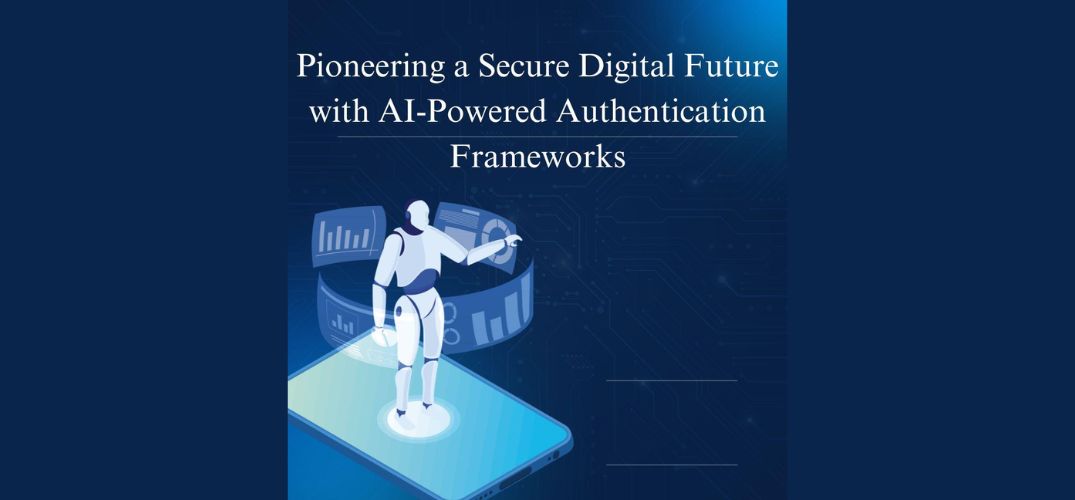In the age of digital transformation, securing identities against advanced threats like deepfakes has become paramount. Ganesh Marrivada explores a groundbreaking framework designed to transform authentication systems, integrating innovative technologies to detect and mitigate digital impersonation threats while addressing evolving cybersecurity challenges.
Revolutionizing Identity Verification
Authentication systems are undergoing a transformative shift to combat the growing complexity of cyber threats. A pioneering framework leverages a multi-modal approach, blending traditional authentication methods with cutting-edge behavioral biometrics and AI-powered verification layers. This innovative system achieves a remarkable 99.1% accuracy, swiftly detecting anomalies during user interactions. Behavioral biometrics, including keystroke dynamics, mouse movement, and touch patterns, add an extra layer of security while ensuring seamless user experiences. By combining these advanced technologies, unauthorized access attempts are curtailed by over 95%, offering robust protection. This framework sets a new benchmark for secure, adaptive, and user-friendly digital authentication solutions.
Deepfake Detection: A Critical Imperative
Deepfake technology presents a growing challenge to the integrity of digital identity systems, exploiting advancements in AI to create highly convincing manipulated media. To address this, a groundbreaking framework employs sophisticated neural networks, achieving a 96.8% detection rate for identifying altered facial features in real time. The system integrates multi-layered convolutional architectures that analyze minute inconsistencies in pixel patterns, lighting, and facial dynamics. Designed to operate effectively under varying conditions, including low-resolution and adversarial settings, the framework ensures heightened security for identity verification systems. By countering deepfake-based attacks, it strengthens trust and reliability in digital authentication and identity management platforms.
Leveraging Federated Learning for Privacy Preservation
In a time of increasing privacy concerns, a groundbreaking framework employs federated learning to protect sensitive user data while maintaining robust performance. By training models locally across distributed nodes, it eliminates the need for centralized data collection, significantly reducing exposure to breaches and ensuring data sovereignty. This decentralized approach minimizes data transfer by over 90%, preserving bandwidth and enhancing security. Federated learning proves particularly effective in privacy-critical domains like healthcare, enabling secure collaboration between institutions while adhering to stringent compliance requirements such as HIPAA. Despite its distributed nature, the framework achieves accuracy levels comparable to traditional centralized models, ensuring optimal outcomes.
Ethical AI and Regulatory Alignment
The integration of ethical AI principles is central to this framework, which incorporates bias detection algorithms to mitigate discriminatory outcomes, achieving a 97% reduction in unintended biases. It adheres to global privacy standards, including GDPR and CCPA, ensuring regulatory compliance. Thorough audit trails enhance transparency and trust, making it ideal for deployment in environments demanding high ethical accountability.
Performance Optimization for Real-World Applications
Efficiency and scalability are critical for enterprise-level authentication systems. This framework optimizes resource allocation, reducing maintenance costs by 45%. It handles peak loads of 50,000 authentication requests per second with sub-500-millisecond response times. Energy-efficient designs lower processing power consumption by 42%, supporting sustainable technology practices. Adaptive learning mechanisms enable the system to evolve with changing user behaviors, ensuring lasting accuracy and reliability.
Building Resilience Against Emerging Threats
As the digital landscape evolves, so do threats to authentication systems. This framework anticipates future challenges by incorporating adaptive and scalable solutions. Blockchain-based decentralized authentication enhances resilience, reducing single points of failure by 99.7%. Additionally, the design integrates quantum-resistant protocols to address vulnerabilities from quantum computing advancements. This forward-looking approach ensures robust security against both current and emerging threats.
Simplifying Deployment and Maintenance
Deploying advanced authentication systems often presents logistical challenges, but this methodology streamlines the process with structured implementation protocols that reduce deployment timelines while ensuring stability. Predictive maintenance proactively addresses potential issues, achieving 99.99% uptime. Automated health checks and database optimizations enhance efficiency, cutting storage requirements by 28% and improving query response times by 34%. These features make it a reliable and sustainable solution for organizations.
The innovations presented by Ganesh Marrivada mark a significant advancement in digital identity security. By integrating behavioral biometrics, AI-driven verification, and privacy-preserving technologies, the framework achieves exceptional performance while addressing ethical and regulatory concerns. Envisioning the future, it focuses on quantum-resistant algorithms and adaptive AI, laying the groundwork for secure, resilient identity verification in an increasingly interconnected world.

































